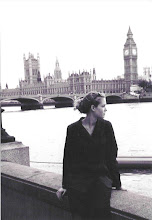While I have really enjoyed all of the books I have read this year (for the most part), the book I am about to discuss has been an especially thought provoking one. I am referring to Susan Abulhawa's Mornings in Jenin. Let's see the stats:
Title: Mornings In Jenin
Author: Susan Abulhawa
Publisher: Bloomsbury
Date: 2010
My start date: 4/19/10
My finish date: 4/24/10
This book was so powerful, I am not even sure where to start. So I guess I will start with a little background. This books deals with a very prickly international dispute and one in which, politically speaking, the US has been very vocal in regards to position: The Israeli-Palestinian Conflict. Unfortunately, in today's society, for a variety of reasons, most of us have only heard or are only interested in the Israeli side of this story. Most stories we hear relating to the Palestinians, when we hear any at all, relate instances of extreme terrorism or the like. We rarely hear and even more rarely discuss the acts of atrocity stemming from the other side, nor do we discuss the condition of the refugees affected by these events.
Now, I should take this opportunity to reassert that I am, as always, a politically neutral person. Every story has two sides. But I do find it problematic when we don't listen to BOTH sides. Abulhawa provides us that opportunity in her poignant story of four generations of a Palestinian family. This book is beautifully written. Abulhawa guides her reader through all spectrums of emotion from sheer joy to utter despair. Beginning with the first generation in the 40s as they are removed "temporarily" from the land that has been theirs for hundreds of years, she progress through each generation and the trials they encounter, providing a touching voice to a group that has not often been given the microphone in the past. This work is often compared in scope to the works of Khaled Hosseini, notably The Kite Runner, in giving westerners a look at the human factor behind all of the media propaganda. While there are distinct differences in the style and structure of these works, for example, Abulhawa's decision to trace a family rather than focus entirely on an individual as Hosseini has done, the quality and overall feeling of the works is the same. Also similar, I will warn you, if you have any feelings, this book will induce tears, and more than once.
Something I found tremendous in this work, is Abulhawa's project of awareness over condemnation. Many of you will assume that this will be a book about pointing fingers at a bad guy, about playing a victim. Not so. I was very impressed that, despite the terrors suffered by her characters at the hands of the Israeli Jews, her writing is not the type that wants to lump all people of any one group into a category. Throughout the novel you will encounter a good number of well written, compassionate Jews. There really isn't a "bad guy" here, each character is written so that you can understand where he or she is coming from, even when you can't or don't want necessarily to sympathize. Bad acts are committed on both sides. Despite the sad events, this book is written to give a people a voice, not to stir up more hate.
Stylistically, I like Abulhawa's decision to follow multiple generations and shift the main perspective to a different protagonist in the next generation down each time such a shift is necessary. What I found unusual, but not altogether unpleasing, was her decision to periodically shift from third person narrative to the first person narrative. I was very aware of this shift, I found it interesting, but I am at a loss to explain it. Sorry. Maybe you can and if so, please feel free to comment to me about it. And finally, this story is filled with interesting twists which keep you guessing and on your feet. And you all know by now how much I enjoy being surprised in my reading.
I will wrap up with this: everyone should read this book. I don't care at all what your political stance is. Understanding perspectives is important. And this is just plain a great book anyway. READ IT.
That's it. Until next time,
Keep Reading!
Sarah
Subscribe to:
Post Comments (Atom)

Sarah, thank you for this lovely review!
ReplyDeleteRegarding the shift in narrative voices, it's just a stylistic thing. no everyone likes it. in fact, i'm seeing that many Western readers find it jarring. I think my style of writing is very much influenced by Arabic literary traditions. Another example might be what has been described as "flowery" prose, which is in line with more Near Eastern traditions.
Again, thank you for reading Mornings in Jenin and for taking the time to review it.
This is another one I should read. I am woefully undereducated in the Palestinian/Israeli situation, and I need to make it my responsibility to see both sides.
ReplyDelete